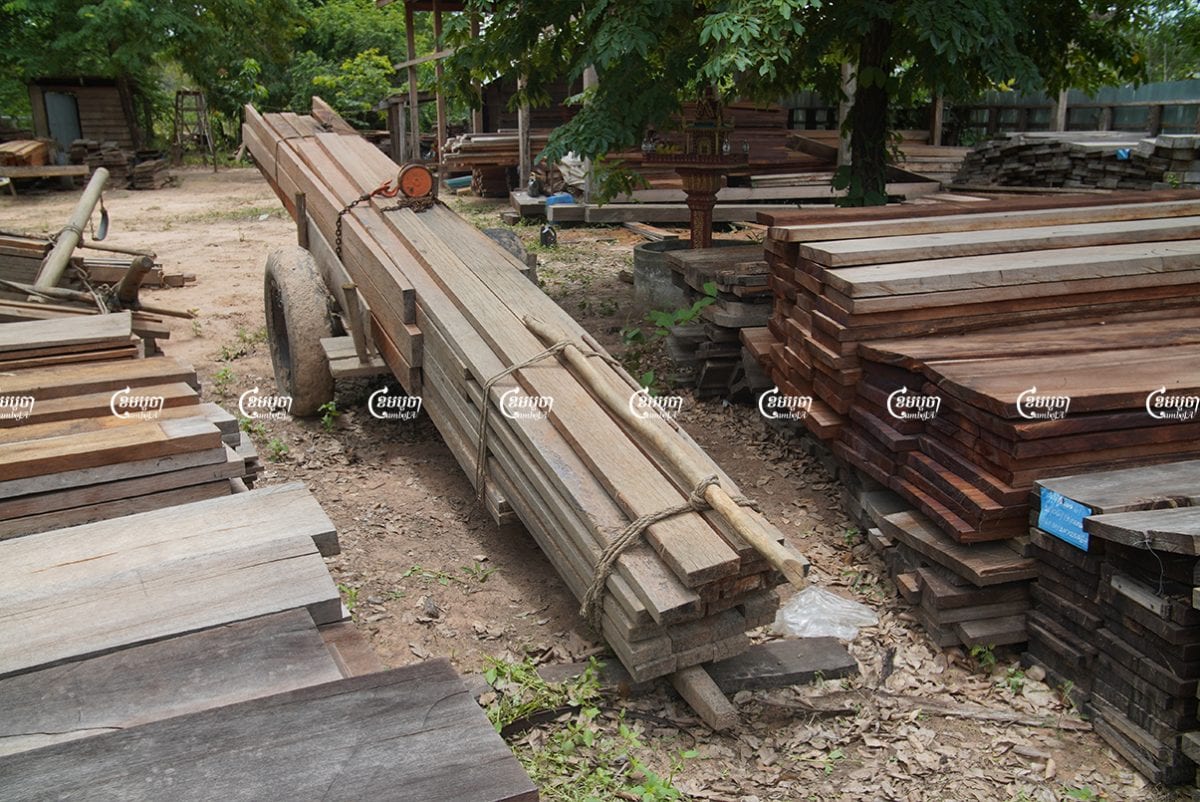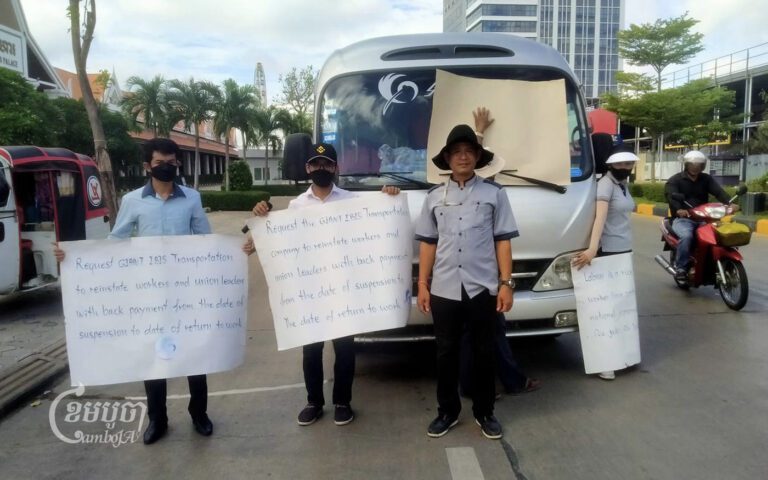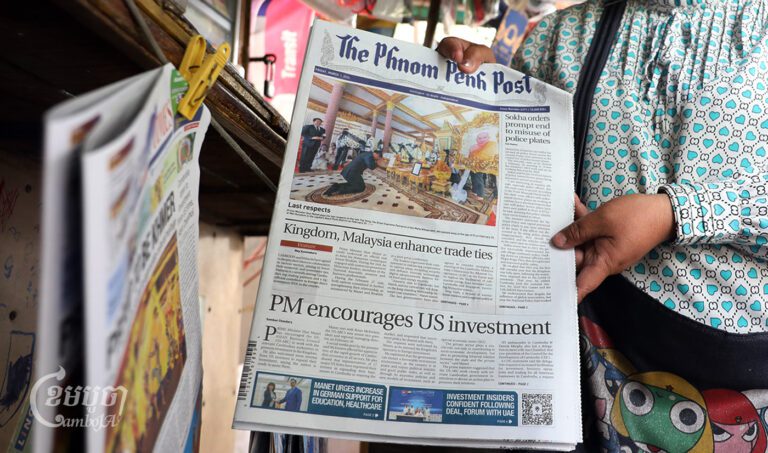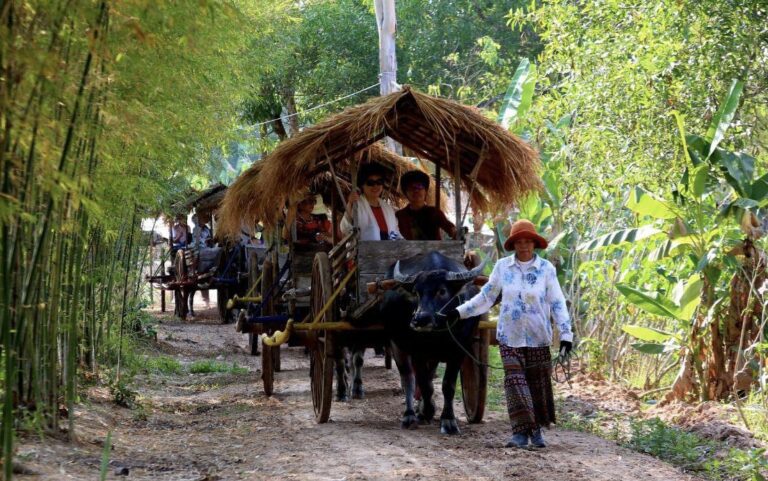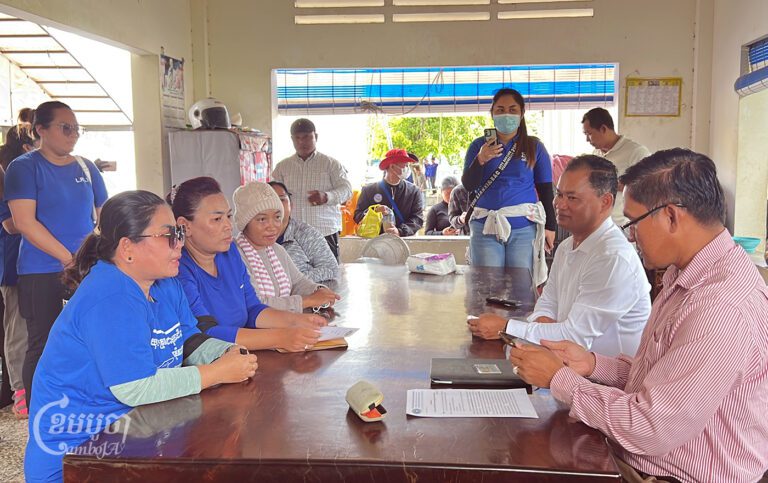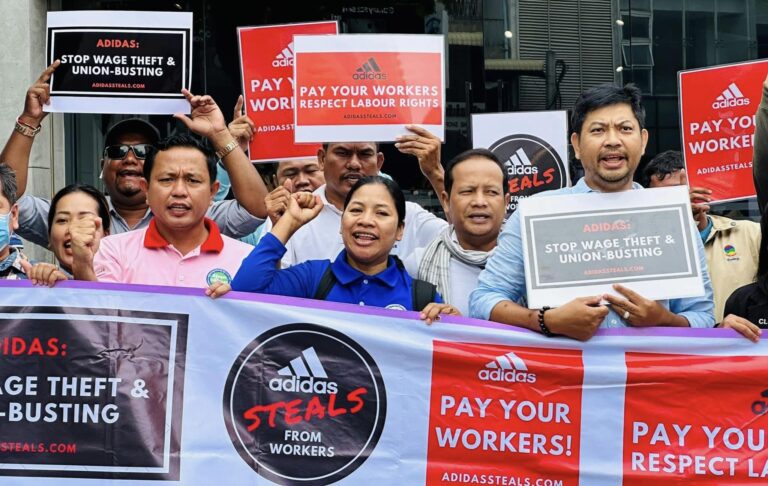As COVID-19 cases continue to rise, provincial-level departments of environment have begun making coffins from timber seized from crackdowns on illegal logging, following instructions made by Prime Minister Hun Sen early this month.
Around 20 to 30 people have been dying each day since the start of July, a marked increase from the average of about 10 deaths a day in June. On Tuesday, the Health Ministry recorded 838 new cases of COVID-19 and 28 deaths, raising those total amounts to 62,700 cases and 953 deaths respectively, since the pandemic began in early 2020. All of the deaths and most of the cases have occurred since February 2021, when the country experienced its first community outbreak.
Neth Pheaktra, spokesman of the Ministry of Environment told CamboJA that the ministry has started taking timber seized from illegal logging raids to produce coffins and turned them over to the government’s Committee to Combat COVID-19.
“The ministry has collected around 1,347 cubic meters of wood that have been taken from illegal logging between 2020 to 2021 to produce coffins. Based on the estimate, all the woods under the Ministry of Environment’s control can produce around 1,000 coffins,” Pheaktra said. “Now, twelve Environment Departments across the country have produced 510 coffins and continued their operation in producing more coffins.”
Pheakra said the coffins have been sent to the COVID-19 Patient Management Committee to facilitate and coordinate with provincial-level COVID-19 Combating Subcommittees. He said some of the coffins have already been used.
In a July 1 speech, the Prime Minister ordered the Environment Ministry and Agriculture Ministry to discuss with General Sao Sokha, commander of National Military Police and the National Committee for the Prevention and Crackdown on Natural Resource Crimes, about using the confiscated woods to produce coffins.
“Timbers that we seized in the past must be taken to produce coffins [for COVID-19 deaths],” Hun Sen said. “I think that the proper arrangement of coffins is a respect for the corpses.”
He said that the Ministry of Economy and Finance would release funds to buy coffins for COVID-19 deaths and send them to hospitals across the country.
The ministry “has to buy 80 percent of coffins that they [coffin sellers] have for selling to keep in hand,” said Hun Sen.
The premier also warned officials not to use the opportunity as an excuse to look the other way when it came to forestry crimes.
“Don’t take the opportunity to excuse [illegal] timber cutting for coffin producing,” said Hun Sen.
But some activists said they feared exactly that would come to pass.
Heng Sros, a forestry activist in Cambodia said that in general, illegal loggers take advantage of big events when the government is distracted — such as an election or outbreak — to increase their activities. Sros said he was concerned that such an order could lead to an uptick in illegal logging.
“I think that if the government just wants woods to produce as coffins for COVID-19 deaths, they can just take normal plywood and can produce enough coffins for those deaths. But if the government wants to take all logs that were seized from illegal forestry crimes to produce coffins, this is the government’s decision because the government has the right to decide on it,” he said.
But, he added, “we also were concerned when prime minister Hun Sen announced that Cambodia needs to prepare wood to produce coffins because some companies are very happy to cut wood in protected areas.”
Menh Ny, 57, a forestry activist of Prey Lang Community in Kampong Thom province, said he too feared that illegal loggers would use the coffin order as an excuse to carry out more illicit activity.
“Illegal logging activities in Prey Lang Community are happening everyday even as Cambodia is combating COVID-19,” Ny said. “I am concerned that bad people take the opportunity to excuse illegal logging for coffin production.”
National Military Police Commander Sao Sokha, spokesman Eng Hy, and Srey Vuthy, spokesman of the Ministry of Agriculture could not be reached for comment.
Separately, Ngor Mengchruon, deputy governor of Banteay Meanchey province said that his working group received orders from the government commanding them to buy coffins from Thailand for COVID-19 deaths in border provinces, because the cost would be less than having them sent from Phnom Penh.
And in Phnom Penh, Deputy Governor Keut Chhe said at a press conference on Monday that the city would soon receive two electric crematoriums to deal with the increase in deaths. The capital is currently allowing the cremation of those who died from COVID-19 only at three pagodas in Phnom Penh: Wat Toek Thla, Wat Russei Sanh, and a pagoda in Prek Pnov district.


